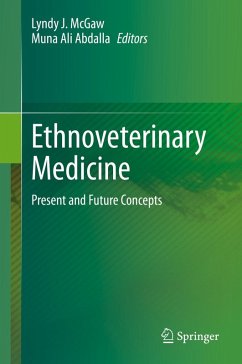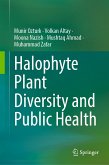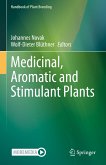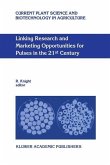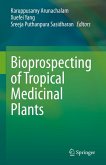Ethnoveterinary Medicine (eBook, PDF)
Present and Future Concepts
Redaktion: McGaw, Lyndy J.; Abdalla, Muna Ali
191,95 €
inkl. MwSt.
Sofort per Download lieferbar

96 °P sammeln
Ethnoveterinary Medicine (eBook, PDF)
Present and Future Concepts
Redaktion: McGaw, Lyndy J.; Abdalla, Muna Ali
- Format: PDF
- Merkliste
- Auf die Merkliste
- Bewerten Bewerten
- Teilen
- Produkt teilen
- Produkterinnerung
- Produkterinnerung

Bitte loggen Sie sich zunächst in Ihr Kundenkonto ein oder registrieren Sie sich bei
bücher.de, um das eBook-Abo tolino select nutzen zu können.
Hier können Sie sich einloggen
Hier können Sie sich einloggen
Sie sind bereits eingeloggt. Klicken Sie auf 2. tolino select Abo, um fortzufahren.

Bitte loggen Sie sich zunächst in Ihr Kundenkonto ein oder registrieren Sie sich bei bücher.de, um das eBook-Abo tolino select nutzen zu können.
International panel of experts discuss ethnoveterinary medicine practices in different parts of the world. Focus on the latest applications and pharmacological properties of plants and natural products against animal diseases. Compare different concerns and interest between European, African and Asian experiences in the area of folk veterinary medicine.
- Geräte: PC
- ohne Kopierschutz
- eBook Hilfe
- Größe: 9.54MB
Andere Kunden interessierten sich auch für
![Halophyte Plant Diversity and Public Health (eBook, PDF) Halophyte Plant Diversity and Public Health (eBook, PDF)]() Münir ÖztürkHalophyte Plant Diversity and Public Health (eBook, PDF)144,95 €
Münir ÖztürkHalophyte Plant Diversity and Public Health (eBook, PDF)144,95 €![Medicinal, Aromatic and Stimulant Plants (eBook, PDF) Medicinal, Aromatic and Stimulant Plants (eBook, PDF)]() Medicinal, Aromatic and Stimulant Plants (eBook, PDF)128,95 €
Medicinal, Aromatic and Stimulant Plants (eBook, PDF)128,95 €![Linking Research and Marketing Opportunities for Pulses in the 21st Century (eBook, PDF) Linking Research and Marketing Opportunities for Pulses in the 21st Century (eBook, PDF)]() Linking Research and Marketing Opportunities for Pulses in the 21st Century (eBook, PDF)160,95 €
Linking Research and Marketing Opportunities for Pulses in the 21st Century (eBook, PDF)160,95 €![Bioprospecting of Tropical Medicinal Plants (eBook, PDF) Bioprospecting of Tropical Medicinal Plants (eBook, PDF)]() Bioprospecting of Tropical Medicinal Plants (eBook, PDF)191,95 €
Bioprospecting of Tropical Medicinal Plants (eBook, PDF)191,95 €![Cinnamon (eBook, PDF) Cinnamon (eBook, PDF)]() Cinnamon (eBook, PDF)136,95 €
Cinnamon (eBook, PDF)136,95 €![Advance in Barley Sciences (eBook, PDF) Advance in Barley Sciences (eBook, PDF)]() Advance in Barley Sciences (eBook, PDF)160,95 €
Advance in Barley Sciences (eBook, PDF)160,95 €![The Baobabs: Pachycauls of Africa, Madagascar and Australia (eBook, PDF) The Baobabs: Pachycauls of Africa, Madagascar and Australia (eBook, PDF)]() G. E. WickensThe Baobabs: Pachycauls of Africa, Madagascar and Australia (eBook, PDF)256,95 €
G. E. WickensThe Baobabs: Pachycauls of Africa, Madagascar and Australia (eBook, PDF)256,95 €-
-
-
International panel of experts discuss ethnoveterinary medicine practices in different parts of the world.
Focus on the latest
applications and pharmacological properties of plants and natural products against animal diseases.Compare different concerns and interest between European, African and Asian experiences in the area of folk veterinary medicine.
Dieser Download kann aus rechtlichen Gründen nur mit Rechnungsadresse in A, B, BG, CY, CZ, D, DK, EW, E, FIN, F, GR, HR, H, IRL, I, LT, L, LR, M, NL, PL, P, R, S, SLO, SK ausgeliefert werden.
Produktdetails
- Produktdetails
- Verlag: Springer International Publishing
- Seitenzahl: 435
- Erscheinungstermin: 31. Dezember 2019
- Englisch
- ISBN-13: 9783030322700
- Artikelnr.: 59880740
- Verlag: Springer International Publishing
- Seitenzahl: 435
- Erscheinungstermin: 31. Dezember 2019
- Englisch
- ISBN-13: 9783030322700
- Artikelnr.: 59880740
- Herstellerkennzeichnung Die Herstellerinformationen sind derzeit nicht verfügbar.
Lyndy McGaw is Associate Professor and Leader of the Phytomedicine Programme based at the Faculty of Veterinary Science, University of Pretoria. Her research focuses on investigation and development of effective and safe anthelmintic, acaricidal, anti-inflammatory and antimicrobial remedies for use in animal and human medicine, as well as alternatives to antimicrobial feed additives. Prof McGaw has published over 100 scientific papers and has contributed 14 book chapters. She serves on the editorial boards of Frontiers in Ethnopharmacology, South African Journal of Botany, BMC Complementary and Alternative Medicine, and Journal of Ethnopharmacology. She was listed as one of the top 31 cited African researchers in Pharmacology and Toxicology by Thomson Reuters in 2013, and was recently awarded "Researcher of the Year" at the Faculty of Veterinary Sciences, University of Pretoria. Muna Ali Abdalla pursued PhD studies in Natural Products Chemistry in the group of Prof. Hartmut Laatsch at Georg-August University of Göttingen, Germany. From February 2013 to January 2016 she worked as Alexander von Humboldt (AvH) postdoctoral fellow at Institute of Chemistry, TU Berlin. From 2016 she was awarded a three-year contract as a Senior Postdoctoral Fellow at the University of Pretoria, South Africa. She was appointed as a phytochemist involved in collaborative projects as well as supervision of PhD students. Dr Abdalla has published more than 30 papers in international peer-reviewed journals, discovered dozens of bioactive compounds such as abyssomicins, quinones, alkaloids, tetracyclopeptides and phenolic compounds from microorganisms as well as several plant-derived metabolites.
Chapter 1. Introduction.- Part I. The role of natural products and remedies in treating animal diseases.- Chapter 2. The pharmacological and nutritional significance of plant natural products: An alternative for animal health.- Chapter 3. Alternative antimicrobials - medicinal plants and their influences on animal infectious diseases.- Chapter 4. Herbs used for horses in British Columbia and Trinidad and Tobago.- Chapter 5. Plants for controlling parasites in goats.- Chapter 6. Ethnoveterinary practices for control of ticks in Africa.- Part II. Sociological aspects and considerations relating to documentation of ethnoceterinary medicine.- Chapter 7. Gender aspects and multiple contexts in ethnoveterinary practice and science.- Chapter 8. Towards a better understanding of African ethnoveterinary medicine and husbandry.- Part III. Ethnoveterinary medicine around the world.- Chapter 9. Ethnoveterinary medicine and medicinal plants used in the treatment of livestock diseases in Cameroon.-Chapter 10. Ethnoveterinary medicinal plants used in South Africa.- Chapter 11. Ethnoveterinary plants and practices for the control of ticks and tick-borne diseases in South Africa.- Chapter 12. Ethnoveterinary medicine: a Zimbabwean perspective.- Chapter 13. Ethnoveterinary medicine in the Maghreb.- Chapter 14. Natural remedies for animal health in Latin America.- Chapter 15. Local practice of cattle farming and ethnoveterinary medicine in Estonia: case study of Saaremaa and Muhumaa.- Chapter 16. Belarusian ethnoveterinary medicine: ritual practices and traditional remedies.- Chapter 17. The use of medicinal plants for animal health in the Spanish inventory of traditional knowledge.- Index
Chapter 1. Introduction.- Part I. The role of natural products and remedies in treating animal diseases.- Chapter 2. The pharmacological and nutritional significance of plant natural products: An alternative for animal health.- Chapter 3. Alternative antimicrobials - medicinal plants and their influences on animal infectious diseases.- Chapter 4. Herbs used for horses in British Columbia and Trinidad and Tobago.- Chapter 5. Plants for controlling parasites in goats.- Chapter 6. Ethnoveterinary practices for control of ticks in Africa.- Part II. Sociological aspects and considerations relating to documentation of ethnoceterinary medicine.- Chapter 7. Gender aspects and multiple contexts in ethnoveterinary practice and science.- Chapter 8. Towards a better understanding of African ethnoveterinary medicine and husbandry.- Part III. Ethnoveterinary medicine around the world.- Chapter 9. Ethnoveterinary medicine and medicinal plants used in the treatment of livestock diseases in Cameroon.-Chapter 10. Ethnoveterinary medicinal plants used in South Africa.- Chapter 11. Ethnoveterinary plants and practices for the control of ticks and tick-borne diseases in South Africa.- Chapter 12. Ethnoveterinary medicine: a Zimbabwean perspective.- Chapter 13. Ethnoveterinary medicine in the Maghreb.- Chapter 14. Natural remedies for animal health in Latin America.- Chapter 15. Local practice of cattle farming and ethnoveterinary medicine in Estonia: case study of Saaremaa and Muhumaa.- Chapter 16. Belarusian ethnoveterinary medicine: ritual practices and traditional remedies.- Chapter 17. The use of medicinal plants for animal health in the Spanish inventory of traditional knowledge.- Index
